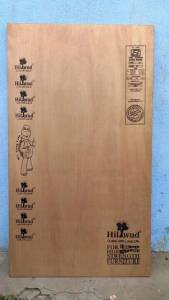Description
Film Faced Plywood: Superior Strength and Protection for Your Projects
Film faced plywood offers a robust and versatile solution for a wide range of construction and industrial applications. Its exceptional strength, durability, and smooth, protective surface make it a superior choice compared to standard plywood. This product description details its key features and benefits.
What is Film Faced Plywood?
Film faced plywood is a type of plywood that's been enhanced with a protective phenolic film laminated to both faces. This film is typically a melamine resin-based material, offering superior resistance to moisture, abrasion, and chemicals compared to untreated plywood. The core of the plywood remains typically constructed from hardwood or softwood plies, bonded together with strong adhesives to create a durable and stable panel.
Key Features & Benefits:
- Superior Durability: The phenolic film provides exceptional resistance to scratches, dents, and impacts, extending the lifespan of the plywood significantly. This is especially important in demanding environments or for applications requiring frequent handling.
- Moisture Resistance: The film acts as a significant barrier against moisture penetration, preventing swelling, warping, and delamination, making it ideal for outdoor applications and humid environments.
- Smooth Surface: The smooth, clean surface of the film allows for easy handling and clean paint finishes. It also minimizes the need for extensive sanding or surface preparation before applying further coatings or finishes.
- Chemical Resistance: Phenolic films offer good resistance to many common chemicals, making film faced plywood suitable for use in industrial settings and applications where exposure to chemicals is a possibility.
- High Strength-to-Weight Ratio: Film faced plywood combines excellent strength with a relatively light weight, making it easy to handle and transport.
- Versatility: Suitable for a wide variety of applications, from formwork in concrete construction to shuttering in precast concrete, and even general construction applications.
Applications:
- Formwork for Concrete: Widely used as formwork for walls, columns, beams, and slabs due to its strength and smooth surface which results in high-quality concrete finishes.
- Shuttering for Precast Concrete: Essential for creating precise and durable precast concrete elements.
- Construction Scaffolding: Provides a stable and durable platform for construction workers.
- Shipping and Packaging: Used for creating strong and protective packaging for various goods.
- Industrial Applications: Suitable for various industrial applications requiring strong and resistant material.
- Marine Applications: Its water resistance makes it suitable for certain marine applications (though specialized marine-grade plywood should be considered for more demanding underwater uses).
Specifications:
- Thickness: Available in a variety of thicknesses to meet diverse project requirements. (Specific thicknesses will vary by supplier – check with your vendor).
- Size: Standard sheet sizes are commonly available, but custom sizes might also be possible (check with your supplier).
- Grade: Different grades are available depending on the quality of the core plywood and the film type used. (Consult with supplier for grading information).
Choosing the Right Film Faced Plywood:
The best type of film faced plywood depends on your specific project requirements. Consider factors such as the thickness needed, the required strength, the level of moisture resistance required, and the expected environmental conditions. Consult with a plywood supplier or specialist to ensure you select the appropriate grade and specifications for your application.
